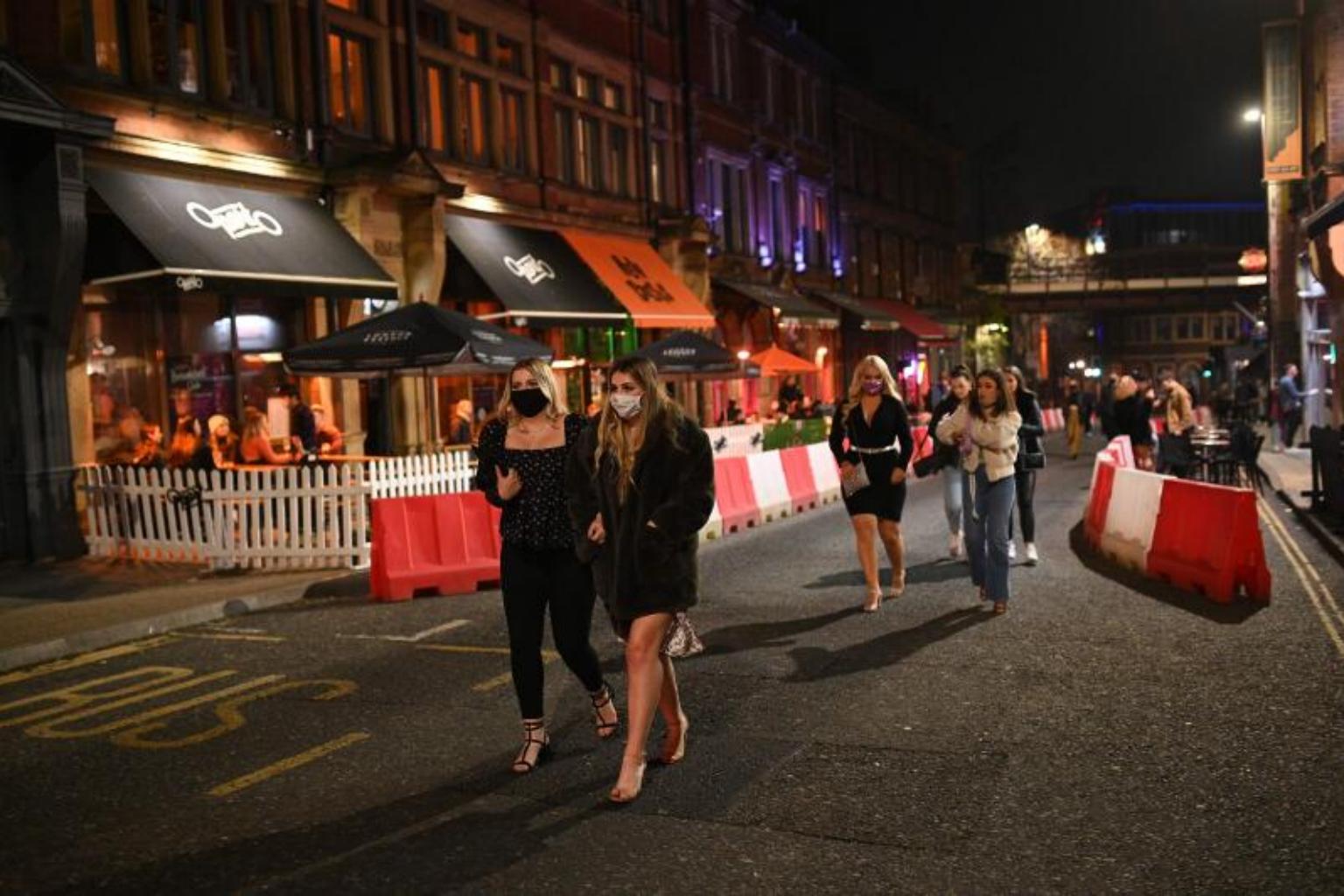Reluctant last orders as England enters new lockdown
Sign up now: Get ST's newsletters delivered to your inbox

People will be ordered to stay at home from 0001 GMT on Nov 5, 2020, to combat a surge in new infections.
PHOTO: AFP
Follow topic:
LONDON (REUTERS, AFP) - After downing a final round of drinks, queueing outside soon-to-close shops or getting a last haircut, England's 56 million people entered a second coronavirus lockdown on Thursday (Nov 5) with more doubts about the stringent policy than the first time around.
British lawmakers approved a month-long lockdown in England, voting on Wednesday (Nov 4) in favour of Prime Minister Boris Johnson's plan to try to prevent Covid-19 running out of control and overwhelming health services.
People will be ordered to stay at home from 0001 GMT on Thursday to combat a surge in new infections that could, if unchecked, cause more deaths than a first wave which forced a three-month lockdown earlier this year.
The 516-38 vote had been in little doubt after the opposition Labour Party said they would support the move, even though they criticised Johnson for acting too slowly. He was also criticised by some in his own party who said a national lockdown was too severe.
"None of us came into politics to tell people once again to shutter their shops, to furlough their staff or stay away from their friends and family," Johnson told parliament in an attempt to calm rebels within his Conservative Party.
The United Kingdom, which has the biggest official death toll in Europe from Covid-19, is grappling with more than 20,000 new coronavirus cases a day and scientists have warned the "worst case" scenario of 80,000 dead could be exceeded.
Those warnings forced Johnson to announce a U-turn last Saturday (Oct 31), having previously insisted on an approach of regional lockdowns.
Labour leader Keir Starmer said: "While these regulations are not in any way desirable or perfect, they are now necessary because the government has lost control of the virus."
Some in Johnson's own party, however, voted against the plan.
"I have a fundamental problem with much of what we're being asked to do here - as well as the economic impact, the human toll which this will have," said Graham Brady, head of an influential Conservative committee.
Compliance with coronavirus measures has been fraying the longer they drag on into the winter, as people's livelihoods come under greater strain.
"We will be paying this off for years," said Joe Curran, the landlord of The Queen's Head pub in the Soho area of central London.
"This lockdown will cost us thousands on top of the thousands so far."
"This lockdown will cost us thousands on top of the thousands so far."
A new study of more than 6,000 adults by King's College London found one-quarter believed they had already contracted Covid-19 during the first wave, a much higher level of infection than government scientists estimate.
Many in the study stated they were therefore immune and free to breach lockdown rules.
Starmer told Johnson in parliament that it would be "madness" to end the measures in four weeks if cases are still rising then.
But the prime minister pointed to a city-wide testing pilot launching in Liverpool on Friday (Nov 6), as a precursor to a nationwide programme which he hopes will finally get the coronavirus under control before a vaccine comes on-stream.
"We will then (on Dec 2), I hope very much, be able to get this country going again, to get businesses, to get shops open again in the run-up to Christmas," Johnson said.
Finance minister Rishi Sunak will detail new financial support measures on Thursday, the government said.
Also Thursday, the Bank of England is expected at its latest policy meeting to boost its cash stimulus to fight the pandemic's economic fallout, with another £100 billion (S$177 billion) coming on tap.

